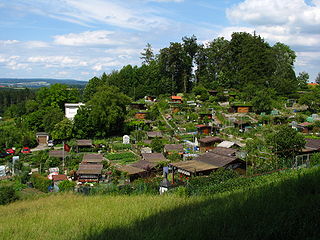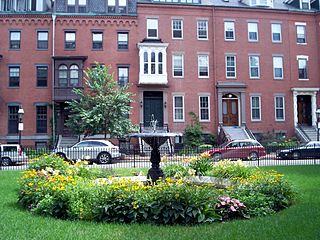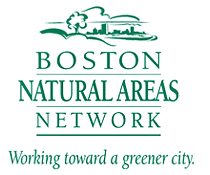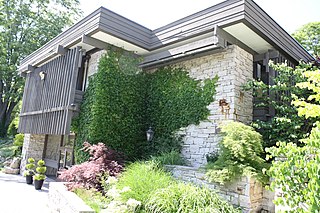History
The Land Trust was established in 1991 with the intent to incorporate and protect eight established community gardens. The existing gardens were owned by a variety of institutions, none of them with long term legal protection. The legal incorporation as a non-profit organization with an elected board composed of neighbors created an entity that was able to partner with The Trust for Public Land to purchase the range of properties from a variety of owners, and set in place a process to use and care for the gardens in perpetuity. Many of the original eight gardens were primarily food producing, helping to augment the budgets of low and moderate-income urban families. Land Trust gardens continue to be places of food production, as well as gardeners growing ornamental plants.
SELROSLTheld and operated sixteen community gardens, gardened by approximately 600 gardeners, and accessible to their adjacent neighborhoods. Individual gardens have received awards from the Massachusetts Horticultural Society, the City of Boston, and Horticulture magazine. Three SELROSLT community gardens have been the subject of the nationally distributed WGBH-produced program The Victory Garden.
In July 2012, after a year of joint planning, SELROSLT voted to merge into Boston Natural Areas Network (BNAN). The time had come for SELROSLT to move from an all volunteer organization to an organization that provided full-time staff and greater resources. The merger gives the community gardens access the resources of BNAN, and their affiliate The Trustees of Reservations. The deeds for all SELROSLT community spaces were all transferred to BNAN, ensuring the protection of community gardens and open spaces in perpetuity.

Gardening is the practice of growing and cultivating plants as part of horticulture. In gardens, ornamental plants are often grown for their flowers, foliage, or overall appearance; useful plants, such as root vegetables, leaf vegetables, fruits, and herbs, are grown for consumption, for use as dyes, or for medicinal or cosmetic use. Gardening is considered by many people to be a relaxing activity.

An allotment garden, often called simply an allotment, or a community garden, is a plot of land made available for individual, non-commercial gardening or growing food plants. Such plots are formed by subdividing a piece of land into a few or up to several hundred land parcels that are assigned to individuals or families. Such parcels are cultivated individually, contrary to other community garden types where the entire area is tended collectively by a group of people. In countries that do not use the term “allotment (garden)”, a “community garden” may refer to individual small garden plots as well as to a single, large piece of land gardened collectively by a group of people. The term “victory garden” is also still sometimes used, especially when a community garden dates back to the First or Second World War.

Roxbury is a neighborhood within the city of Boston, Massachusetts.

Urban agriculture,urban farming, or urban gardening is the practice of cultivating, processing and distributing food in or around urban areas. Urban agriculture can also involve animal husbandry, aquaculture, agroforestry, urban beekeeping, and horticulture. These activities occur in peri-urban areas as well, and peri-urban agriculture may have different characteristics.

The South End is a neighborhood of Boston, Massachusetts. It is bordered by Back Bay, Chinatown, and Roxbury. It is distinguished from other neighborhoods by its Victorian style houses and the many parks in and around the area. The South End is the largest intact Victorian row house district in the country, which is made up of over 300 acres. Eleven residential parks are scattered around the South End. In 1973, the South End was listed in the National Register of Historic Places. The construction of the South End began in 1849 when the neighborhood was built on tidal marshes.

Victory gardens, also called war gardens or food gardens for defense, were vegetable, fruit, and herb gardens planted at private residences and public parks in the United States, United Kingdom, Canada, Australia and Germany during World War I and World War II. George Washington Carver wrote an agricultural tract and promoted the idea of what he called a "Victory Garden". They were used along with Rationing Stamps and Cards to reduce pressure on the public food supply. Besides indirectly aiding the war effort, these gardens were also considered a civil "morale booster" in that gardeners could feel empowered by their contribution of labor and rewarded by the produce grown. This made victory gardens a part of daily life on the home front.

Guerrilla gardening is the act of gardening on land that the gardeners do not have the legal rights to cultivate, such as abandoned sites, areas that are not being cared for, or private property. It encompasses a diverse range of people and motivations, ranging from gardeners who spill over their legal boundaries to gardeners with political influences who seek to provoke change by using guerrilla gardening as a form of protest or direct action. This practice has implications for land rights and land reform; aiming to promote re-consideration of land ownership in order to assign a new purpose or reclaim land that is perceived to be in neglect or misused.

A community garden is a single piece of land gardened collectively by a group of people. Community gardens utilize either individual or shared plots on private or public land while producing fruit, vegetables, and/or plants grown for their attractive appearance. Around the world, community gardens can fulfill a variety of purposes such as aesthetic and community improvement, physical or mental well-being, or land conservation.

Boston's diverse neighborhoods serve as a political and cultural organizing mechanism. The City of Boston's Office of Neighborhood Services has designated 23 Neighborhoods in the city:

The Boston Natural Areas Network (BNAN), founded in 1977 is a non-profit organization based in Boston, in the U.S. state of Massachusetts, which works to identify and protect significant natural areas described as urban wilds and greenways in the metropolitan area.

Horticulture is the science and art of growing fruits and vegetables and also flowers or ornamental plants.
Denver Urban Gardens (DUG) is a non-profit organization that supports community gardens in Denver, Colorado in the United States.

The Lower Roxbury Historic District is a historic district encompassing an isolated pocket of 1890s mixed residential-commercial property in the lower Roxbury neighborhood of Boston, Massachusetts. Bounded by Tremont, Columbus, and Burke Streets and St. Cyprian's Place, the area contains a well-kept collection of architect designed buildings that survived late 20th-century urban redevelopment. The district was added to the National Register of Historic Places in 1994.
The West Side Community Garden is a privately owned park in Manhattan, New York City, United States. It is located between West 89th Street and West 90th Street in the middle of the block between Amsterdam Avenue and Columbus Avenue.
Community Greens, sometimes referred to as backyard commons, urban commons, or pocket neighborhoods, are shared open green spaces on the inside of city blocks, created either when residents merge backyard space or reclaim underutilized urban land such as vacant lots and alleyways. These shared spaces are communally used and managed only by the residents whose homes abut them. They are not a public park, a private backyard, or a community garden; however, they can function as all three.

Southwest Corridor Park is a linear urban park in Boston, Massachusetts, part of the Metropolitan Park System of Greater Boston and managed by the Massachusetts Department of Conservation and Recreation (DCR). It extends from the South End and Back Bay neighborhoods south for almost five miles (8 km), ending in the Forest Hills section of Jamaica Plain in what was originally planned to be the alignment for Interstate 95 to Boston. It closely follows the routes of regional Amtrak and Commuter Rail lines and the Massachusetts Bay Transportation Authority (MBTA) Orange Line rapid transit rail line, from its Back Bay Station to its terminus at Forest Hills station. It features tennis courts, basketball courts, playgrounds, and walking, jogging, and biking paths.

The Bay View Garden And Yard Society (Society) is a nonprofit 501(c)(7) organization based in the Bay View neighborhood of Milwaukee, Wisconsin.
French intensive gardening also known as biodynamic, raised bed, wide bed, or French market gardening is a method of gardening in which plants are grown within a smaller space and with higher yields than other traditional gardening methods. The main principles for success are often listed as soil improvement, raised beds, close spacing, companion planting, succession planting and crop rotation. Originating in France, the practice is popular among urban gardeners and small for profit farming operations.

Community gardening in the United States encompasses a wide variety of approaches. Community gardens can function as gathering places for neighbors, promote healthier eating, and showcase art to raise ecological awareness. Other gardens resemble European "allotment" gardens, with plots where individuals and families can grow vegetables and flowers; including a number which began as "victory gardens" during World War II.

The Toronto Botanical Garden (TBG) is located at 777 Lawrence Avenue East at Leslie Street, in Toronto, Ontario, Canada. Termed "The little garden with big ideas", the TBG is nearly four acres and features 17 themed "city-sized gardens". Located in the north-east corner of Edwards Gardens, the TBG is a non-profit horticultural and educational organization with a mission to connect people, plants and the natural world through education, inspiration and leadership.

















